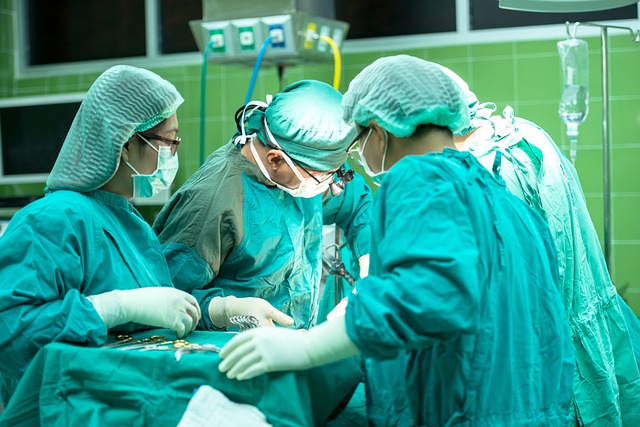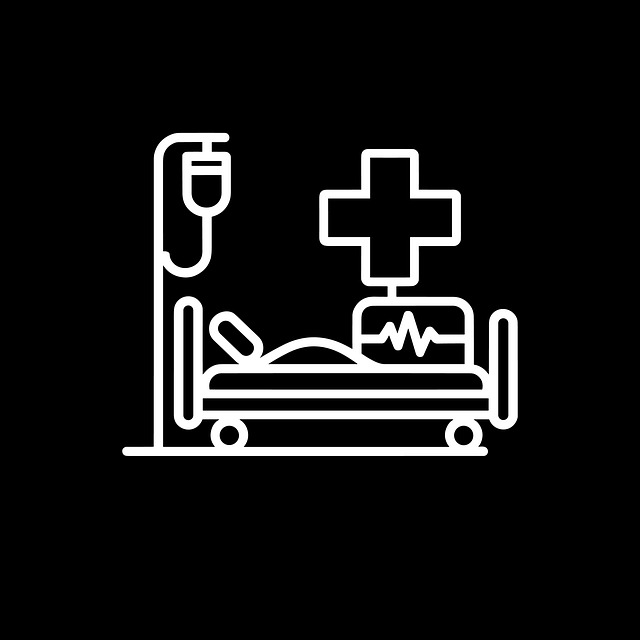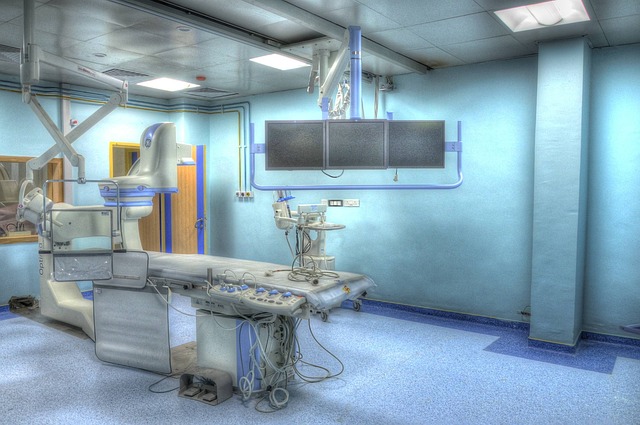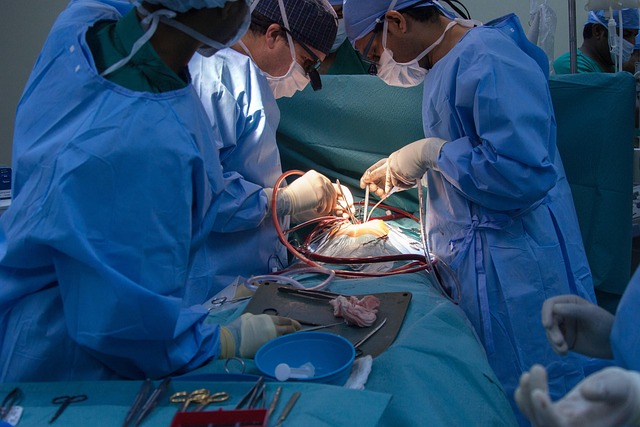Post-surgery recovery involves non-invasive treatments like physical therapy, laser treatments, and advanced pain management techniques, which promote healing, reduce discomfort, and minimize complications. Physical therapy accelerates healing, restores mobility, and boosts mental well-being. Alternative methods such as acupuncture, massage, breathing exercises, and mindfulness meditation support faster recovery and reduce medication reliance. A balanced diet with whole foods and adequate hydration speeds up healing. Mental health care is crucial, addressing emotional aspects of recovery through therapy and mindfulness to enhance overall well-being. Non-invasive post-op treatments are game-changers in achieving successful patient outcomes and improving satisfaction during recovery.
After surgery, a patient’s journey towards recovery is vital. This comprehensive guide offers expert insights into navigating post-surgery rehabilitation. We explore foundational non-invasive treatments, emphasizing their role in accelerating healing. Discover the impact of physical therapy and innovative pain management techniques that reduce reliance on medication. Additionally, we delve into nutritional guidelines and mental health support, ensuring a holistic approach to optimal post-surgical recovery, with a focus on effective non-invasive post-op treatment strategies.
- Understanding Post-Surgery Recovery: The Foundation of Non-Invasive Treatments
- Role of Physical Therapy in Accelerating Post-Op Healing
- Exploring Non-Pharmacological Pain Management Strategies
- Nutritional Guidelines for Optimal Post-Surgical Recovery
- Mental Health and Well-being: Supporting Patients During Post-Surgery Journey
Understanding Post-Surgery Recovery: The Foundation of Non-Invasive Treatments

Post-surgery recovery is a critical phase that forms the foundation for patients’ return to optimal health and daily routines. Understanding this process, especially the role of non-invasive treatments, is essential for a smoother transition from surgery to healing. Many individuals often equate post-operative care with invasive procedures, but modern medical advancements offer a range of non-invasive post-op treatments that can be equally effective.
These treatments are designed to promote healing, reduce discomfort, and minimise the risk of complications without resorting to major surgeries or extensive interventions. From physical therapy and targeted laser treatments to advanced pain management techniques, these non-invasive options provide patients with a more comfortable and efficient path towards recovery. By integrating such methods into post-surgery routines, medical professionals can ensure better patient outcomes and enhance overall satisfaction during the healing journey.
Role of Physical Therapy in Accelerating Post-Op Healing

Physical therapy plays a pivotal role in accelerating post-operative healing, offering a crucial non-invasive post-op treatment option. Through tailored exercises and techniques, physiotherapists help restore mobility, reduce pain, and strengthen muscles around the surgical site. This early intervention can significantly expedite recovery, enabling patients to regain their range of motion and return to daily activities more swiftly.
The benefits extend beyond physical improvements; regular therapy sessions also promote mental well-being. Engaging in therapeutic exercises provides patients with a sense of control over their healing process, boosts confidence, and alleviates the stress often associated with post-surgery recovery. With dedicated guidance from professionals, individuals can actively participate in their own care, ensuring a smoother transition back to their regular routines.
Exploring Non-Pharmacological Pain Management Strategies

Post-surgery recovery often involves managing pain, and while pharmacological options are common, exploring non-invasive post-op treatment strategies can be immensely beneficial. Non-pharmacological methods offer a range of techniques to alleviate discomfort naturally, promoting faster healing and improved patient comfort. These strategies include physical therapy, acupuncture, massage, and relaxation techniques such as deep breathing exercises and mindfulness meditation.
Incorporating these alternative approaches can reduce reliance on prescription medications, minimize side effects, and empower patients with self-care tools. Many non-invasive post-op treatments have been studied for their effectiveness in managing pain, offering a holistic and gentle method to support the body during recovery without the potential risks associated with certain medications.
Nutritional Guidelines for Optimal Post-Surgical Recovery

A well-balanced diet is essential for a successful and swift recovery after surgery, especially with non-invasive post-op treatments. Patients should focus on whole, nutrient-dense foods that support healing and immune function. Aim for a diet rich in lean proteins, such as fish, poultry, and legumes, which are vital for tissue repair and the growth of new cells. Fresh fruits and vegetables provide essential vitamins, minerals, and antioxidants to bolster the body’s natural defense mechanisms.
In addition, incorporating healthy fats from sources like avocados, nuts, and olive oil can aid in reducing inflammation and supporting overall well-being. Staying hydrated is another crucial aspect; drinking plenty of water helps maintain optimal bodily functions and facilitates the elimination of waste products. It’s recommended to avoid excessive sugar and processed foods, as they can impair recovery and increase the risk of complications, especially when considering non-invasive post-op treatments.
Mental Health and Well-being: Supporting Patients During Post-Surgery Journey

Mental Health and Well-being play a pivotal role in a patient’s successful post-surgery recovery, often overlooked yet equally crucial as physical healing. The transition from surgery to recovery can be emotionally challenging, triggering anxiety or depression, especially with significant procedures. Healthcare professionals must provide compassionate support during this journey, encouraging patients to express their feelings and fears openly. Non-invasive post-op treatments, such as therapy, mindfulness practices, and stress management techniques, can significantly enhance patient resilience and overall well-being.
By integrating mental health care into the recovery plan, patients are empowered to navigate the post-surgery period with greater ease. Healthcare providers can offer guidance on managing pain and discomfort not just physically but also cognitively, ensuring patients feel equipped to handle potential setbacks or adverse emotions that may arise during their healing process.
Post-surgery recovery is a multifaceted process that requires expert guidance. By understanding the importance of non-invasive post-op treatments, leveraging physical therapy, adopting non-pharmacological pain management strategies, following nutritional guidelines, and prioritizing mental health and well-being, patients can significantly enhance their recovery journey. These comprehensive approaches ensure optimal healing and a swift return to daily activities.
